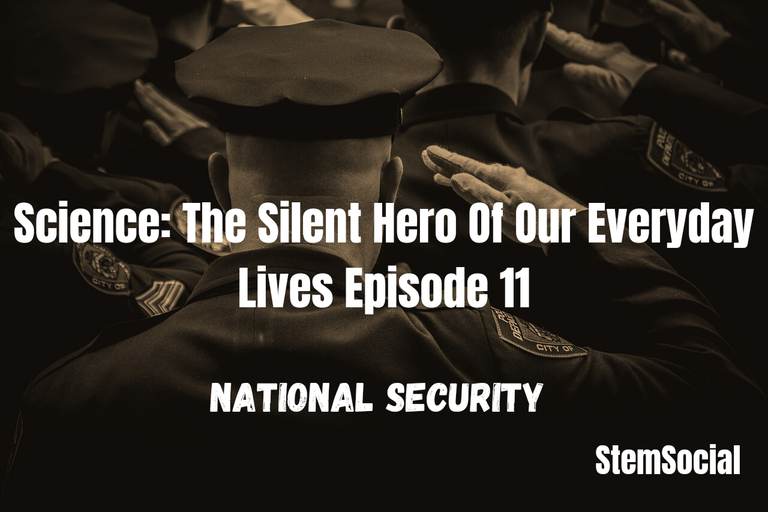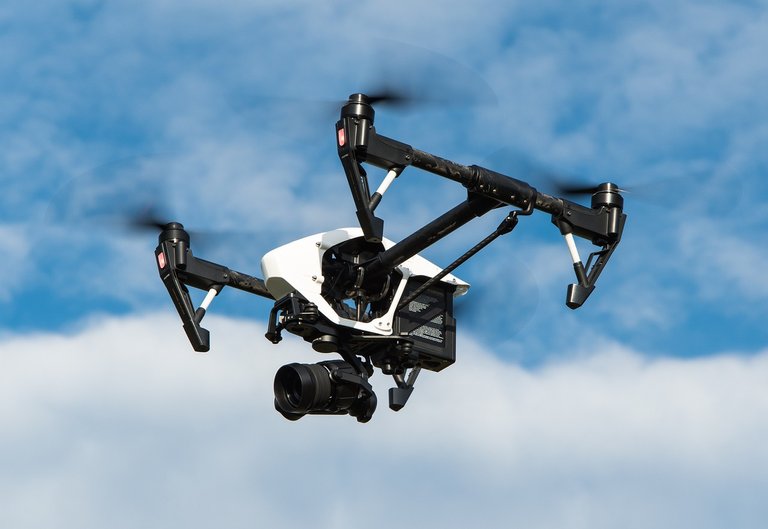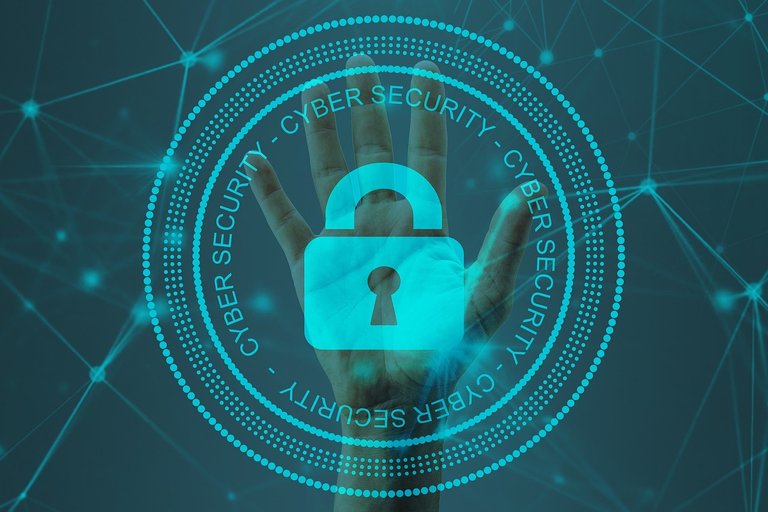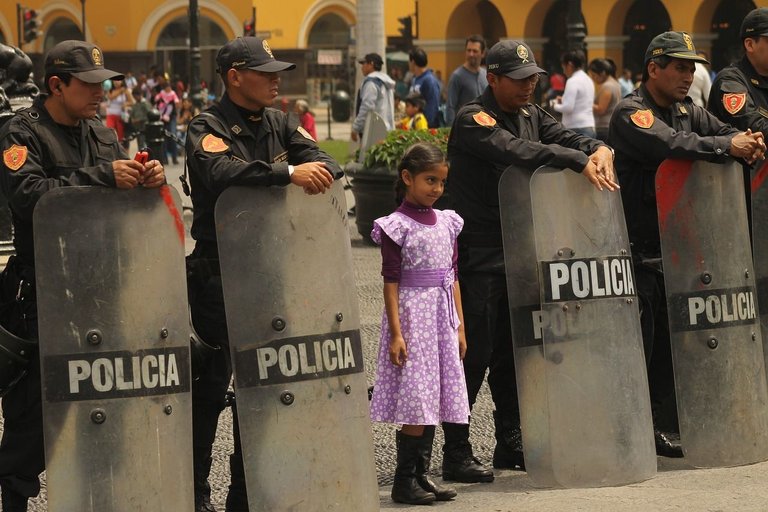Science: The Silent Hero Of Our Everyday Lives Episode 11 - National Security.
Welcome to the 11th part of our series, "Science: The Silent Hero of Our Everyday Lives." In today's article, we're going to explore together how science helps make our countries safer. Our hero might not always grab the headlines, but it's a secret agent working in the background to keep us safe. It plays an absolutely crucial role in ensuring that our countries are well-prepared to defend themselves against a wide range of threats. These threats could come from potential encounters with extraterrestrial beings(Aliens) or from rival nations with unfriendly intentions. So, let's take a closer look at how science is an indispensable force in keeping our nations safe and secure.

This image was sourced and edited with canvas
1. Advanced Surveillance Technologies:
Science has provided us with some seriously impressive stuff, like those satellites orbiting up in space and the drones that zip through the skies. These aren't just fancy toys; they have important jobs to do.
Let's talk about satellites first. Think of them as our cosmic lookout towers. They're like the watchful eyes that never close. They keep track of weather patterns, help us navigate with GPS, and even spy on the bad guys. For instance, when there's a hurricane brewing in the ocean, satellites give us a heads-up so we can prepare.
Now, drones are like our personal aerial scouts. They fly around, capturing images and data from places we can't easily reach. For instance, firefighters use drones to get a bird's-eye view of wildfires, helping them plan their firefighting strategies. In the military, drones are used for surveillance, making sure we're aware of any suspicious activities in areas that might be hard to reach by foot.
So, thanks to science and these cool gadgets, we've got a 24/7 security team in the sky, always on the lookout for anything that might threaten our safety.

2. Cybersecurity and Encryption:
In today's world, where everything's done on computers and the internet, science steps in with some powerful tools to protect our important information. One of these tools is called encryption as discussed in previous episodes. Imagine you're sending a secret message to your friend, and you don't want anyone else to read it. Encryption is like putting that message into a special code that only you and your friend can understand. So, even if someone tries to sneak a peek, all they'll see is a bunch of gibberish.
Now, when it comes to cybersecurity, think of it as your digital bodyguard. It's a set of practices and technologies that shield your computer systems and networks from attacks. These cyberattacks can come from hackers who want to steal your personal information, disrupt important services, or even cause chaos. With cybersecurity, you build a strong fortress around your digital world to keep those cyber-criminals out.
So, thanks to our beloved science, we've got these smart ways to keep our digital stuff safe and sound in the era of computers and the internet.

3. Nuclear Deterrence:
Because of some really smart scientific progress, countries have something called "nuclear deterrents." These are like big, scary warning signs that say, "Don't mess with us!"
Now, imagine you have a super-strong shield. You don't want to use it, but just having it makes others think twice before picking a fight with you. That's what these nuclear deterrents are like for countries. They have powerful nuclear weapons, and the mere existence of these weapons makes other nations think very carefully before trying anything aggressive. It's a giant "stay away" sign in the world of international relations. A critical example is what transpired between the Russia and Ukraine war in 2022. Nations we hesitant to retaliate and help out Ukraine because of the Russian threat of releasing their nuclear weapon.
4. Biological and Chemical Defense:
Science is our shield against invisible enemies. It gives us three important tools: vaccines, antidotes, and detection systems.
Let's break them down.
Vaccines - Think of vaccines as your body's personal bodyguards. They are like tiny, harmless versions of the bad germs that can make you sick. When you get a vaccine, your body learns how to fight those germs off, so if you ever come into contact with the real, dangerous ones, your body knows exactly how to protect you. For example, vaccines help prevent diseases like measles, polio, and the great COVID-19.
Antidotes - Now, imagine you accidentally swallow something poisonous. An antidote is like a superhero that can neutralize the poison. For instance, if you get bitten by a venomous snake, there's an antidote that can save your life by counteracting the snake's venom.
Detection Systems - These are our early warning alarms. They can spot the bad stuff before it harms us. For example, in case of a chemical attack or a harmful substance release, detection systems can quickly identify the danger and alert authorities, allowing them to respond swiftly to keep people safe.
So, science gives us these super helpful tools to protect us from sneaky threats we can't even see.
5. Stealth Technology:
Science has brought us some cool innovations, especially in the way we hide our military stuff. It's like playing hide and seek but on a big scale.
Materials - Imagine having a magical cloak that makes you invisible. Well, science has developed special materials that work like that for military equipment. These materials can absorb radar waves, making it really hard for enemy radar systems to detect our planes, ships, and vehicles. Now our military gear can hide in plain sight.
Aerodynamics - Think of fighter jets as race cars of the sky. Science has figured out how to design them to be super sleek and quiet. This makes them hard to spot and hear. For example, the B-2 Spirit bomber is a famous stealth aircraft that looks like a flying wing and is incredibly hard to detect on radar.
So thanks to these scientific tricks, our military can operate with a stealthy advantage, making it tough for the bad guys to see us coming.
6. Artificial Intelligence in Defense:
Science is making our defense smarter and faster with some high-tech help.
AI for Data Analysis - Imagine you have a mountain of information to sift through, and you need to find something important quickly. Science has given us Artificial Intelligence (AI), which is like a fast detective. It can analyze tons of data in the blink of an eye. For example, it can sort through surveillance footage to spot suspicious activity or analyze incoming data to predict potential threats.
Autonomous Weaponry - Think of drones or robots that can make decisions on their own. These are our high-tech soldiers. Science has developed AI-powered machines that can be used for defense. They can patrol areas, identify targets, and even take action without human control in some cases.
So, by using AI, science helps our military make quick, smart choices, and it also allows us to deploy advanced technology that can react swiftly to threats. It's like having a trusty sidekick who can analyze data and assist in protecting our nation.

Conclusion:
In this episode of our series, we've revealed how science works quietly but powerfully to make our country safe. It's a hidden hero, always ready to protect us from dangers on Earth and even from outer space. In our complex world, let's remember that science is our silent protector, always watching over our nations. Cheers to science 🥂.
Congratulations @willythewhale! You have completed the following achievement on the Hive blockchain And have been rewarded with New badge(s)
Your next target is to reach 200 posts.
You can view your badges on your board and compare yourself to others in the Ranking
If you no longer want to receive notifications, reply to this comment with the word
STOPTo support your work, I also upvoted your post!
Check out our last posts:
Thanks for your contribution to the STEMsocial community. Feel free to join us on discord to get to know the rest of us!
Please consider delegating to the @stemsocial account (85% of the curation rewards are returned).
You may also include @stemsocial as a beneficiary of the rewards of this post to get a stronger support.